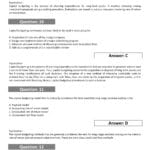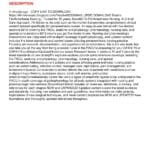Prepare to conquer the ABSITE, a crucial milestone in your surgical journey. This comprehensive guide provides a strategic roadmap to understanding the exam, crafting an effective study plan, and maximizing your performance. Whether you’re just beginning your preparation or seeking a final polish, this guide equips you with the knowledge and tools to achieve ABSITE success and propel your surgical career forward.
Understanding the ABSITE
The American Board of Surgery In-Training Examination (ABSITE) is a rite of passage for general surgery residents. Administered annually, typically in late January or early February, this comprehensive exam assesses your grasp of surgical knowledge and skills. Think of it as a high-stakes progress report, providing valuable insights into your strengths and weaknesses as you advance through your residency.
The ABSITE typically comprises approximately 250 multiple-choice questions, covering a broad spectrum of surgical topics. You’ll have 5 hours to complete the exam, without scheduled breaks. While it may seem daunting, understanding the structure and purpose of the ABSITE can significantly reduce anxiety and empower you to approach it strategically.
This exam serves as a critical stepping stone toward the American Board of Surgery Qualifying Exam (QE). Research suggests a correlation between ABSITE performance and success on the QE, highlighting the importance of dedicated preparation. A strong ABSITE score can also enhance your competitiveness for coveted fellowships, signaling to program directors your commitment to learning and mastery of foundational surgical principles.
Decoding Your ABSITE Score
Your ABSITE score is more than just a number; it’s a valuable feedback tool that can shape your future surgical career. Scores are reported in three formats: standard score (typically centered around 500), percent correct, and percentile rank. While each offers a different perspective, the percentile rank, which compares your performance to other test-takers, is often the most scrutinized.
While a percentile rank of 50 or higher is generally considered respectable, the definition of a “good” score can vary depending on the program and specialty. Highly competitive fellowships, like surgical oncology or plastic surgery, may favor applicants with scores in the 75th percentile or above. However, it’s crucial to remember that the ABSITE score is just one piece of the puzzle. Fellowship directors also weigh factors like letters of recommendation, clinical performance, research experience, and personal qualities.
It’s also important to recognize that the landscape of surgical evaluation is constantly evolving. Ongoing research explores new methods for assessing surgical knowledge and skills, suggesting that the criteria for evaluation may shift over time. Staying informed about current trends and expectations within your chosen field is paramount.
Here’s a breakdown of the ABSITE score types:
| Score Type | Description |
|---|---|
| Standard Score | A standardized score with a mean of 500 and a standard deviation of 100. |
| Percent Correct | The percentage of questions answered correctly. |
| Percentile | Your ranking compared to other test-takers, expressed as a percentage. |
Preparing for the ABSITE: A Strategic Approach
Preparing for the ABSITE requires a structured, personalized approach. While a common recommendation is to dedicate three to six months to studying, the ideal timeframe varies depending on your baseline knowledge, clinical experience, and available study time.
Here’s a step-by-step guide to crafting a winning ABSITE study plan:
Step 1: Identify Your Weaknesses
Just as a surgeon diagnoses a patient before treatment, you must pinpoint your areas of weakness. Use practice questions or review the ABSITE content outline to identify topics that require extra attention.
Step 2: Gather Your Resources
Equip yourself with the right tools. This may include textbooks, online question banks (consider exploring resources related to avaneesh), review courses, and study groups. Experiment to discover the resources that best suit your learning style.
Step 3: Embrace Regular Review
Consistent review is paramount for long-term retention. Space out your study sessions and revisit material regularly, reinforcing your understanding over time.
Step 4: Practice, Practice, Practice
ABSITE-style practice questions are invaluable. Begin with untimed practice to familiarize yourself with the format and content. As you progress, incorporate timed simulations to hone your time management skills and build test-taking stamina.
Beyond the Books: Maximizing Your Preparation
While a strong foundation of knowledge is essential, several other factors can influence your ABSITE performance:
Clinical Experience: Hands-on experience in the operating room can solidify your understanding of surgical principles. The more you’ve seen and done, the more readily you’ll grasp the concepts presented on the exam.
Mental Fortitude: The pressure of the ABSITE can be intense. Prioritizing mental well-being through stress management techniques, such as mindfulness and exercise, can significantly impact your performance.
Test-Taking Strategies: Some research suggests that test-taking skills, such as time management and eliminating incorrect answer choices, can contribute to ABSITE success. Consider incorporating these strategies into your practice sessions.
The Future of the ABSITE
The ABSITE, like the field of surgery itself, is constantly evolving. Ongoing research explores alternative assessment methods, including the incorporation of simulations and practical exams, to provide a more holistic evaluation of surgical competency. While the future format of the ABSITE remains uncertain, a commitment to lifelong learning and a comprehensive understanding of surgical principles will undoubtedly remain crucial for success.
By following this comprehensive guide, you can approach the ABSITE with confidence and position yourself for success in your surgical career. Remember, the journey to becoming a skilled surgeon is a marathon, not a sprint. Pace yourself, stay focused, and embrace the challenge.
- Unlock Filipino Culture: A Deep Dive into Traditions and Practices - April 23, 2025
- Unlock Spanish Culture: Insights & Opportunities Now - April 23, 2025
- White Spirit Uses & Substitutes: A Deep Dive for Pros & DIYers - April 23, 2025
















